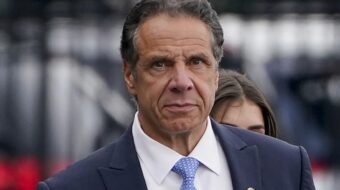The Coalition on Human Needs (CHN) and other defenders of low and middle income people greeted Congress’ passage of a $3.44 trillion FY-2010 Budget Resolution with billions for healthcare, education and “green jobs.” The non-binding spending plan reflects most of President Obama’s priorities. But the grassroots coalition cautioned that the resolution is only a “down payment,” and the struggle for full funding in a time of economic crisis has just begun.
The final vote in the House, as Obama completed 100 days in office, was 233 to 193 with 17 so-called “Blue Dog” Democrats joining Republicans in voting against the package. The Senate vote was 53 to 43 with four Democrats, including Arlen Specter of Pennsylvania, who had just switched from the Republican Party, voting against the resolution.
AFL-CIO President John Sweeney praised the resolution as a “huge down payment on national health care reform, investment in growing green jobs and addressing climate change and for funding for education.”
Alan Charney, program director of USAction said, “This progressive budget represents the change Obama promised and the change we voted for in November.”
ACORN Chief Organizer and CEO Bertha Lewis added, “Not only does this budget increase our investment in programs that pay off over the long term, such as Head Start, Title 1, and other programs that benefit low income children, but it addresses the immediate needs of those families hardest hit by the current economic meltdown.”
Americans United for Change, which helped assemble a coalition of 116 national organizations to work for the budget, reported that 400 grassroots events were organized, 80,000 phone calls, 8,500 peronal letters and 61,000 email messages were sent to lawmakers demanding that they vote for the Obama budget. Hundreds of “Thank You” rallies and vigils were held across the nation April 30 following the ‘yes’ vote in both chambers.
Deborah Weinstein, executive director of the Coalition on Human Needs, told the World, “It’s a time of great promise but also a time of great difficulty. There is a need to move forward simultaneously on many fronts.”
The first, she said, is health care reform. The budget resolution provides for pushing through health care legislation in a process called “budget reconciliation” that requires only a simple majority vote in the Senate. That strips the Republican right of the filibuster, the tactic they have used to thwart progressive legislation. The endless talk requires 60 votes to terminate. “By passing this budget resolution, Congress has set the stage for health care reform and for annual budget appropriation decisions on housing assistance, WIC (a nutrition program for mothers and children), climate change and many other human needs programs,” she said.
She praised inclusion in the budget of funds to help low income people cope with higher energy costs caused by “carbon-caps.” She also singled out Obama’s proposal to make Pell Grants an “entitlement” provided to anyone who meets the criteria for eligibility. While Congress stopped short of accepting Obama’s proposal, they did provide higher funding for Pell Grants ‘so young people won’t be frozen out of higher education just because they don’t have the money.’
Weinstein said the coalition will also fight to preserve the child tax credit and the earned income tax credit which “both the President and Congress are committed to preserving to help people get out of poverty.”
While positive, the budget makes only modest progress in reversing eight years of sharp budget cuts in a wide range of low-income programs, Weinstein said. ‘The budget resolution approved by Congress makes greater than inflation increases in these programs,’ she added. ‘It is a step in the right direction but they did not approve as much as President Obama had requested. You have to remember that not only were these programs cut over the past eight years, the need has also been growing.’
A report by CHN released March 11 studied funding levels for 99 human needs programs over the years 2005 to 2009. It found that “just 22 had increases above inflation and that funding was cut for all the rest,” of the programs. Many of these programs were not included in Obama’s American Recovery and Reinvestment Act.
The report pointed out that between 2001 and 2007, the number of people living in poverty rose from 32.9 million to 37.3 million, an increase if 13 percent. Meanwhile, funding for safety net programs increased only nine percent between fiscal years 2001 and 2009. “By contrast, military spending has grown 39 percent over the same period, not even counting the cost of the Iraq and Afghanistan wars,” the report revealed.
The report concluded, “As the recession worsens and the number of people in poverty grows more rapidly, it is imperative that funding for human needs programs does not fall further behind. If the unemployment rate reaches nine percent, another 7.5 million to 10.3 million Americans could become poor.”









